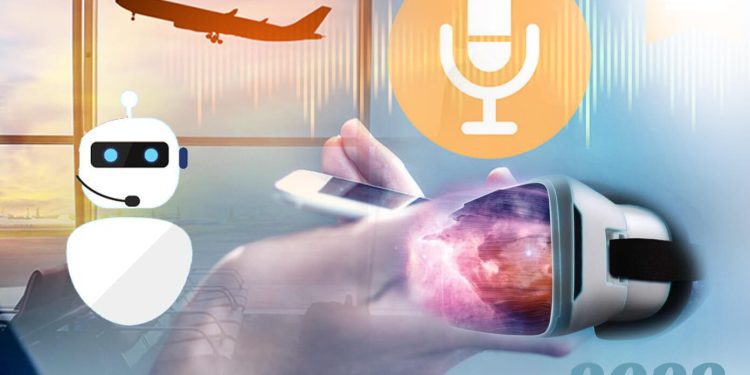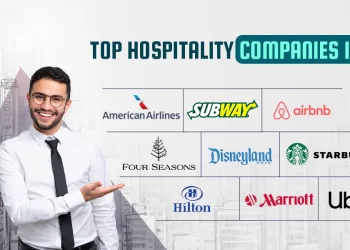Improving productivity and customer satisfaction has always been on top of the priorities list for travel and hospitality business owners. It is, for this reason, this sector has witnessed technological transformation at an unprecedented pace. The outcome has been a spectacular improvement in customer satisfaction and efficiency in service delivery across the industry. The hospitality sector is constantly upgrading, with new trends surfacing every year. As we approach 2022, these travel and hospitality industry technology trends are expected to reign in the new year.
Voice Technology
Voice technology is fast becoming a growing technology trend in the hospitality industry. Thanks to its socially distanced, no-touch attributes, it was pretty helpful when the COVID-19 pandemic was at its peak. By processing human speech and deciphering a command, it can perform several control functions, such as operating lights, pressing buttons, setting alarms, etc. A growing number of customers today are using voice technology to find restaurants, hotels, and cafes. In 2020, a whopping 128 million people used voice technology in the US alone.
Several customer touchpoints in the hospitality sector can benefit from this technology. For example, Voice technology can be used before check-in, during check-out, and beyond. It can streamline booking processes and shorten response time. This technology allows guests to interact in their native language, breaking down language barriers.
Contactless Payments
Post Covid-19, contactless service is the new norm in the market. Driven by machine learning and automation, contactless technology is changing the way the hospitality industry functions. One of the uses of this technology is – Contactless payments. Within the hospitality sector, a cloud-based property management system supports several payment methods. Besides speeding up payments, it enhances the customer experience and adds more flexibility and simplicity to payment systems.
Customers can use multiple payment methods simultaneously, offering them an easy and hassle-free experience.
Robots for a safer experience
Many hotels and restaurants have started using robots to enhance guest experience and improve their safety in the era of Covid-19. From the robot butler to robot bellman, the trend is on the rise. For instance, robots are being assigned concierge roles within hotels, welcoming guests and answering customer queries.
Robots are also excellent for cleaning purposes, to make a hotel or restaurant environment more COVIDsecure.
Hilton Hotels uses a robot named Connie that tells guests about nearby attractions, hotel information, and places to eat. Aloft hotels are using robotic butlers or Botlr in their Cupertino location. Crowne Pizza is using pizza delivery robots at its San Jose Silicon Valley location. Several other examples can be found across the industry, which proves how robotics is enhancing the sector.
Virtual Reality
Virtual reality has applications in several industries, and now the hospitality sector is getting to grips with Virtual Reality’s potential. Besides being an effective marketing tool, it can enhance the customer experience when customers are ready to make a booking, as it can stimulate multiple senses in the process. Customers need a lot of information before making the bookings. VR allows customers to experience a virtual simulation of the hotel/restaurant or any place they plan to visit.
Most modern virtual reality tour videos are accessible from a web browser, making things easier for customers.
Facial Recognition Technology
As the hotels continue to contend with the challenges of Covid-19, they have to ensure proper virus protection while ensuring a superior experience to their customers. In these times, facial recognition is an incredibly valuable tool. It enables seamless authentication, which eases hotel processes and customer purchases.
For example, hotels use this technology to unlock rooms and for check-in and check-out purposes.
Chatbots and Artificial Intelligence
Although AI is not a new trend, it is expected to reign in the hotel tech landscape in the upcoming year. In the modern age, customers expect to interact with hospitality companies across a variety of digital channels and receive rapid responses. Chatbots provide answers to customer queries, taking the burden away from the customer service staff. At the same time, AI is used for data analysis to make the customer experience better and more personalized.
Internet of Things (IoT)
With the help of sensors, IoT collects data and communicates over the internet to operate several devices, turning them into intelligent devices.
For instance, internet-enabled thermostats can automatically adjust room temperatures at check-in and check-out times and according to the weather outside. This enhances customer experience, improves energy efficiency, and is excellent for the environment and hotel’s reputation.
Conclusion
As new trends emerge and the latest innovations are widely used, the customers will start to expect to see certain things. So to live up to their expectations and gain a competitive advantage, you must stay abreast of the latest trends and upgrade your existing technology accordingly.





